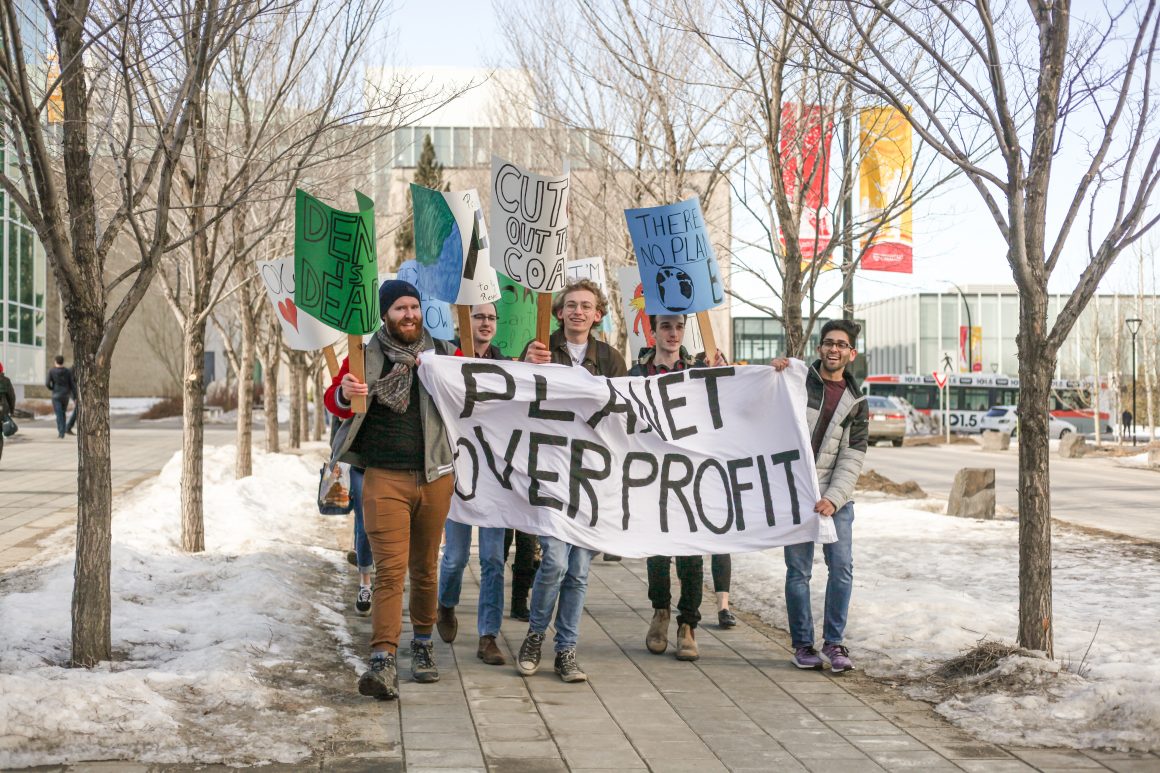
U of C students hold ‘strike’ to demand climate action
By Ashar Memon, March 15 2019 —
Students from the University of Calgary walked out of classes on March 15, joining thousands of others from around the world as part of a ‘climate strike’ to demand more action on climate change.
Around mid-day, more than 20 students organized outside MacHall holding signs that read “planet over profit” and “cut out the coal.”

The ‘Fridays for Future’ protest is part of an international movement started by 16-year-old Swedish activist Greta Thunberg, who began striking in August 2018. Since then, the protests have morphed into a weekly occurrence in several countries around the world.
“We’re protesting inefficient government,” said fourth-year international relations student Sabrina Smith, who helped organize the event. “We’re demanding climate action and we want to secure our futures and have a better planet.
“It’s our future. The reality is that climate is changing. Only two degrees of a difference will have catastrophic effects and will make this planet pretty close to uninhabitable,” Smith added.
Reuters estimated that tens of thousands of students protested around the world on Friday, from Bangkok to Britain.
As part of the 2015 Paris Climate Agreement, 196 countries pledged to curb the long-term increase in global average temperature to below 2 C above pre-industrial levels. Canada was one of the signatories of the agreement that came into effect in November 2016.
In 2018, two years after the agreement was ratified, the United Nations warned that the world wasn’t doing enough to meet the targets pledged by countries, saying that it expects the global average temperature to increase by at least 3 C by the year 2100.
The UN also warns that the brunt of the impact of climate change will hit vulnerable populations, exacerbating income inequality, as well as food and water scarcity.

“There’s literally lives at stake,” said fourth-year business student Mirabelle Harris-Eze, who joined the protest. “If we continue on the way we’re going, there’s going to be more floods, and they’re going to hurt mostly third-world countries, which is, at least for me, one of the worst parts about it.
“People that aren’t even contributing to it as much as, say, like first-world countries, are going to be suffering the most. And so it’s a human rights issue too,” Harris-Eze said.
The protest began at noon and lasted until about 3:30 p.m.
